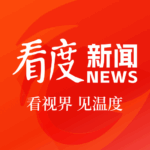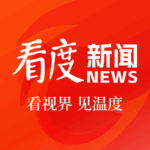The Uzbek edition of “Selected Excerpts from Xi Jinping’s Discourses on Respecting and Protecting Human Rights” was officially launched at a ceremony and exchange seminar held in Tashkent, the capital of Uzbekistan.
Nearly 300 participants attended the event, including representatives from political, think tank, academic, and media circles of both China and Uzbekistan, diplomatic missions in Uzbekistan, international organizations, and Chinese enterprises operating in Uzbekistan.
It was emphasized in the address that “Selected Excerpts from Xi Jinping’s Discourses on Respecting and Protecting Human Rights” is an authoritative work that embodies profound care for the people, rich governance wisdom, and a global perspective on human rights governance. It is centered on a people-oriented human rights philosophy, reflecting a value system that prioritizes the people, institutional arrangements for equality and sharing, and a commitment to international fairness and justice. The translation and publication of this book in Uzbekistan represent a dialogue and mutual learning on human rights, rooted in historical connections, contemporary linkages, and shared principles between the two nations. It is hoped that this will open a new window for the Uzbek people to observe and understand human rights in China and build a bridge of mutual understanding between the intellectual communities and the public of both countries.
It was stated that the launch of the Uzbek edition marks a significant milestone in the history of cooperation between Uzbekistan and China in the fields of cultural exchange and human rights protection, signaling the opening of a new chapter in this collaboration. The concepts put forward, such as improving people’s welfare, promoting human rights through development, and advocating solidarity and cooperation among the Global South, are expected to open broad prospects for cooperation between Uzbekistan and China. China is committed to providing tangible care for its people and ensuring broad participation of citizens in social life, which aligns closely with Uzbekistan’s development goals and principles. The cooperation and efforts with China in the field of human rights protection are highly appreciated.
It was noted that both China and Uzbekistan are steadfastly advancing along modernization paths suited to their national conditions, sharing many common perspectives. The deepening of exchanges and cooperation in the field of human rights further enriches the comprehensive strategic partnership and the community with a shared future between the two nations in the new era.
At the launch ceremony, distinguished guests from both countries jointly unveiled the new book. Copies of the new publication were presented to key Uzbek attendees.
Following the launch, renowned experts and scholars from the human rights and legal fields of both countries engaged in exchanges and discussions on themes such as human rights and development, human rights and the rule of law, respect for the diversity of human rights paths, and cooperation in human rights between China and Uzbekistan as well as China and Central Asia.
The Uzbek edition is the 13th foreign language version of the book, jointly translated and published through collaboration between Foreign Languages Press and a Uzbek publishing house. The launch event was co-hosted by relevant institutions from both countries.
Tashkent
Tashkent is the capital and largest city of Uzbekistan, with a history dating back over 2,000 years. It was a major hub on the Silk Road and has been ruled by various empires, including the Mongols and the Russians. The city is known for its mix of Soviet-era architecture and modern buildings, alongside restored historic sites like the Khast Imam complex.
Uzbekistan
Uzbekistan is a Central Asian nation renowned for its position on the ancient Silk Road, which is marked by a wealth of well-preserved historical cities. These include Samarkand, Bukhara, and Khiva, famed for their spectacular Islamic architecture featuring majestic mosques, madrasas, and mausoleums. The country’s history spans millennia, having been part of various empires including those of Alexander the Great, the Mongols, and later the Russian Empire before gaining independence in 1991.
China
China is a vast East Asian nation with one of the world’s oldest continuous civilizations, dating back over four millennia. Its immense history is marked by a succession of imperial dynasties, which produced foundational cultural and technological achievements like paper, gunpowder, and the Great Wall. Today, it is a major global power, blending its ancient traditions with rapid modernization.
Selected Excerpts from Xi Jinping’s Discourses on Respecting and Protecting Human Rights
“Selected Excerpts from Xi Jinping’s Discourses on Respecting and Protecting Human Rights” is a compilation of speeches and writings by Chinese President Xi Jinping. It outlines China’s official perspective on human rights, which emphasizes a path of development suited to national conditions and prioritizes the rights to subsistence and development. The work presents these discourses as a framework for China’s approach to human rights protection and social progress.
Foreign Languages Press
Foreign Languages Press is a Chinese state-owned publishing house established in 1952. It specializes in translating and distributing official government documents, political theory, and literature into numerous foreign languages. Its primary purpose has always been to disseminate the Chinese Communist Party’s policies and promote China’s image abroad.
Uzbek publishing house
The Uzbek publishing industry has a rich history rooted in the early 20th century, evolving significantly after the establishment of the Uzbek SSR. It was a primary vehicle for promoting literacy and state ideology, and today, it plays a vital role in preserving the national language and culture while producing a wide range of modern literary and educational works.
Global South
The term “Global South” is not a specific place but a socio-economic and political concept referring to countries in Africa, Latin America, Asia, and Oceania that are often characterized by a history of colonialism and a developing economy. It emerged in the late 20th century as an alternative to terms like “Third World” to describe nations that are generally less wealthy and have less geopolitical influence than those in the “Global North.” The concept highlights shared experiences of historical subordination and a collective interest in creating a more equitable global political and economic order.
Central Asia
Central Asia is a vast historical region at the crossroads of Eurasia, historically dominated by nomadic empires and famed for the Silk Road that connected China to the Mediterranean. It is home to ancient cities like Samarkand and Bukhara, which were major centers of trade, science, and Islamic culture. The area was later incorporated into the Russian Empire and then the Soviet Union before its five core nations—Kazakhstan, Kyrgyzstan, Tajikistan, Turkmenistan, and Uzbekistan—gained independence in 1991.



